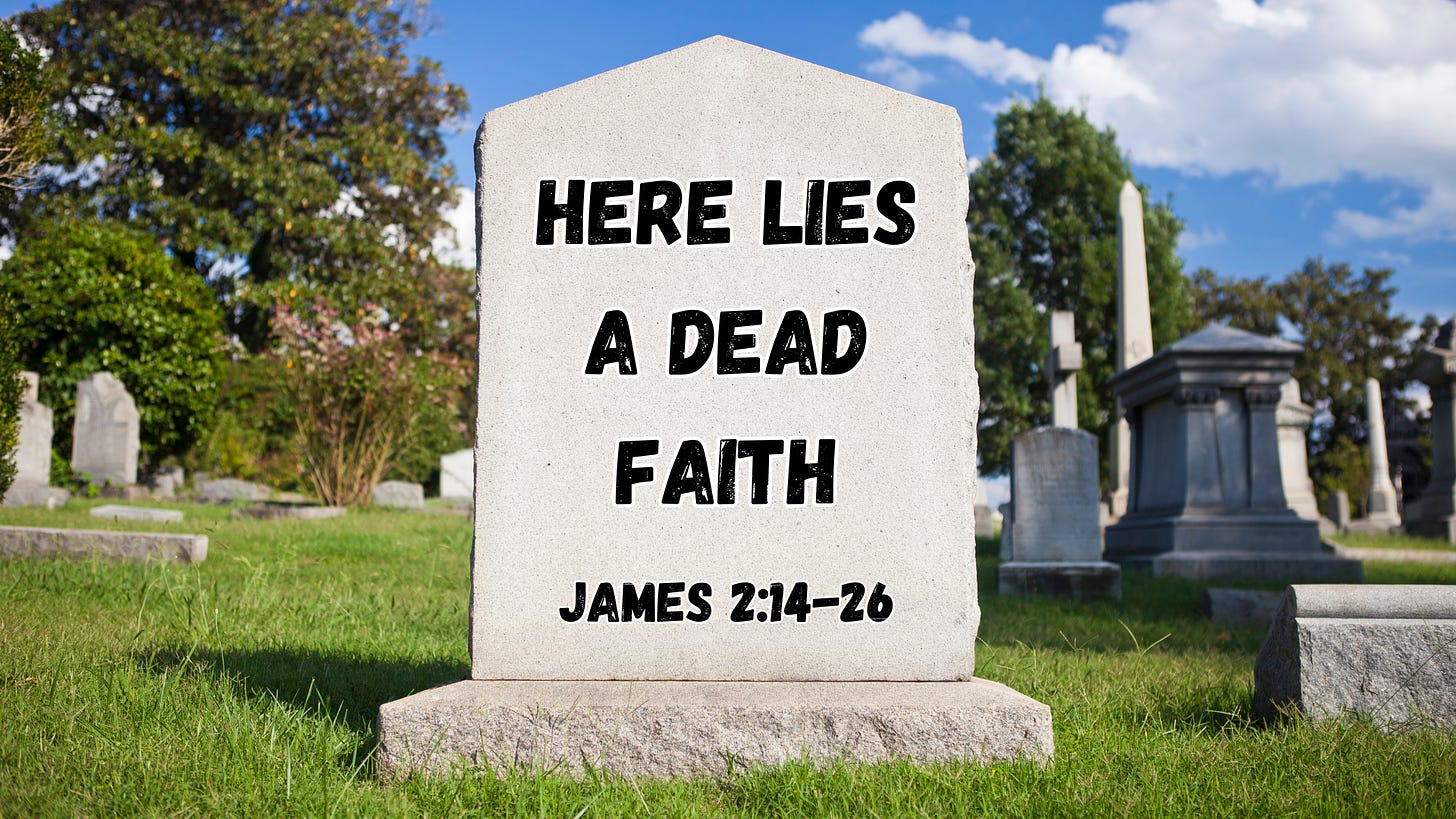Jesus taught that faith is something which must be done.
“Woe to you, scribes and Pharisees, hypocrites! For you pay tithe of mint and anise and cummin, and have neglected the weightier matters of the law: justice and mercy and faith. These you ought to have done, without leaving the others undone. (Matthew 23:23)
Although our faith must be aligned with God’s word (Acts 17:11), merely knowing the truth of God’s word is not enough.
Our study of God’s word is incomplete without asking, “What does God want me to do?”
Without action, faith does no good.
What does it profit, my brethren, if someone says he has faith but does not have works? Can faith save him? If a brother or sister is naked and destitute of daily food, and one of you says to them, “Depart in peace, be warmed and filled,” but you do not give them the things which are needed for the body, what does it profit? Thus also faith by itself, if it does not have works, is dead. (James 2:14-17)
Is it possible to be saved by a faith we do not put into action?
What good is a faith like that? James uses the example of a loved one in need who we do not help - what good does that do for them?
In the same way, faith that doesn’t “do” is worthless and dead.
Faith cannot be separated from works.
But someone will say, “You have faith, and I have works.” Show me your faith without your works, and I will show you my faith by my works. You believe that there is one God. You do well. Even the demons believe—and tremble! (James 2:18-19)
But is it simply possible that some people’s faith remains strong and healthy even though it doesn’t show up in what they do?
James responds by asking, “Well, how would you know?”
He anticipates the response, “Oh, I believe in God and Jesus!”
James replies with what I think includes a bit of sarcasm, “Wonderful! You have the same kind of faith as the demons!” And Jesus teaches this “faith” the demons have is certainly not a “saving faith” - since their eternal destiny is hell (Matthew 25:41).
The example of Abraham’s faith in action.
But do you want to know, O foolish man, that faith without works is dead? Was not Abraham our father justified by works when he offered Isaac his son on the altar? Do you see that faith was working together with his works, and by works faith was made perfect? And the Scripture was fulfilled which says, “Abraham believed God, and it was accounted to him for righteousness.” And he was called the friend of God. You see then that a man is justified by works, and not by faith only. (James 2:20-24)
James points out that it is pure foolishness to think we can have faith without action.
He introduces the example of Abraham’s faith when he obeyed God by offering Isaac on the altar in Genesis 22:1-19. Abraham’s faith cooperated with his actions and together they were made complete.
Faith without works is incomplete, the same as works without faith is incomplete.
Abraham’s faith and works cooperating together fulfilled what was written about him earlier in Genesis 15:1-6. Abraham’s obedience in Genesis 22 demonstrated his faith in God’s promise years earlier in Genesis 15.
The example of Rahab’s faith in action.
Likewise, was not Rahab the harlot also justified by works when she received the messengers and sent them out another way? For as the body without the spirit is dead, so faith without works is dead also. (James 2:25-26)
Rahab hid the spies, even though she knew very little about God in comparison to the Israelites (Joshua 2:1-7). However, what she did know was the bedrock for why she put her faith into action.
She knew the Lord would keep His promises by giving the land to Israel (Joshua 2:9).
She knew the Lord’s great power to deliver on His promises (Joshua 2:10).
She knew the Lord was the one true God (Joshua 2:11).
Based on these things, her faith cooperated together with her actions (works).
She would have died in Jericho if she had not put her faith into action. In the same way, faith without works is also dead.






I think faith without works is impossible
Thank you for this very good and helpful study on faith.
Studies in the book of James are very practical. A reference in the book of Ephesians, chapter 2, verses 8-10 are also helpful for this subject.
Keep up the good work.